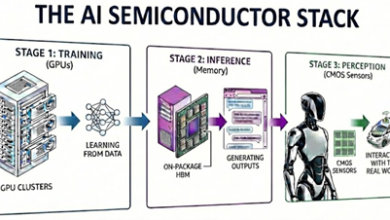
The way healthcare is provided and how people maintain their health could be altered by AI agents, which are digital assistants made to assist businesses in automating specific tasks and enhancing decision-making.
The true value will be realized with the deployment of AI agents that are individually responsible for distinct tasks but collaborate smoothly, even though healthcare organizations are currently using AI for discrete use cases.
One AI agent might be trained to understand test results, another to record and interpret verbal instructions or exchanges between a patient and a physician, and a third to encode a treatment plan for proper payment in a clinical setting.
AI Agents in Healthcare: What Are They?
Through chat, text, or voice interfaces, AI bots can monitor internal and external data in healthcare settings, summarize spoken phrases, and recognize signs that require human attention. This enables users—both patients and clinicians—to receive real-time results and continuously improve accuracy and performance.
AI agents receive requests in human language, encrypt them, and then send them to the business data repository. After understanding the question using an LLM, the agent looks up pertinent information in the knowledge base, reranks the content for semantic relevance, combines the query with the most pertinent content to produce a coherent response, and then sends the response to the requester along with the content that was used to create it.
By automating routine tasks, AI agents in healthcare essentially use artificial intelligence to lessen the workload of healthcare professionals, particularly administrators. As a result, they have more time to concentrate on improving operations, higher-level decision-making, and patient contacts.
Large volumes of data from government regulatory libraries, medical research archives, electronic health records, and other sources can be analyzed by AI agents at a more sophisticated, clinical level to diagnose and to customize treatment programs based on patient histories and other attributes. To assist doctors in making decisions and enhancing patient outcomes, they process and analyze enormous data sets—both historical and current—using predictive analytics.
Benefits of AI Agents in Healthcare
AI agents can aid healthcare organizations and their patients in two ways: by lowering the expense and stress of administrative tasks and by improving clinical decision-making and treatment. Read on to learn more about these and other advantages.
1. Real Time Monitoring
By establishing connections with remote patient monitoring equipment such as heart monitors, glucometers, and smartwatches, AI agents are able to continuously check the health of their patients. Instead of relying just on information gathered during office visits or unplanned ER trips, clinicians may now access a constant stream of health data that the AI agent can process and assess.
Only notifications that need a doctor’s intervention can be sent to them. This kind of real-time monitoring can also motivate patients to take a more active role in their health because the AI agent may be set up to communicate with them in plain language.
2. Assistance for medical professionals.
By giving doctors machine learning tools that have been trained on particular clinical data sets and patient history summaries before appointments, AI agents can help doctors make judgments.
An oncologist treating a patient with lung cancer, for instance, might request that the AI agent compile information from multiple sources, such as lab reports, CT scans, the most recent clinical research on the disease, and the patient’s self-reported lifestyle choices, and then use the results to provide predictive modeling analysis that can help the oncologist suggest a treatment plan.
3. Enhanced diagnostic capabilities
AI agents can help clinicians make more accurate diagnoses by giving them summaries of patient medical history (and even genomic) data, relevant medical research, data from patient medical devices, and evaluations of MRIs, CT scans, and X-rays.
4. Personalized care
Together, AI agents can use patient data from sources to create individualized treatment regimens that clinicians can examine and approve. AI agents can also alert healthcare providers when sensor data from personal medical devices is out of range.
5. Increased effectiveness
Doctors typically see patients for 15 to 20 minutes, and it takes them an additional 15 to 20 minutes to update the patient’s electronic health record. AI agents can help physicians regain time to interact with patients and collaborate with extended care teams to make clinical choices by automating EHR updates and treatment coding to enable proper reimbursement.
Important Use Cases for AI Agents in Healthcare
AI’s capacity to analyze large volumes of data is leveraged in healthcare use cases for AI agents to enhance patient care and reduce administrative burden. Applications that allow the agent to learn over time are the most promising. The following are the top performers:
1. Patient Observation
AI agents can monitor health data from patient wearable devices and other at-home medical equipment to create real-time warnings when blood pressure, glucose, and other variables reach predetermined values. More importantly, they can filter through the massive amounts of data that many medical devices produce, providing only the information that healthcare providers require to enhance patients’ immediate and long-term treatment.
2. Virtual Healthcare Assistants
AI-powered virtual health assistants can aid in tracking patient health data, answering questions, and giving health advice and reminders. Usually accessible via a website or mobile app, the tools can interact with patients using natural language interfaces and access vast amounts of health data to provide them accurate and current responses.
3. Support for Clinical Decision-Making
According to one estimate, reading all of the medical literature published in a single year would take a doctor 13 years. Because of this, generative AI agents that can process large amounts of research data, compile it, and provide pertinent recommendations based on a patient’s health situation could be useful to clinicians.
4. Finding new drugs
Pharmaceutical businesses are using AI software development services to help search through chemical compound libraries and gather information from patient demographics, clinical trials, health science publications, and patient profiles. The most promising novel drugs, even those that human researchers have previously rejected as therapies for specific ailments, can be found and developed more quickly with the help of AI bots.
5. Automation in administration
In addition to managing prescription refill requests and responding quickly to patients’ administrative questions, AI agents can assist in streamlining appointment scheduling, invoicing, and recordkeeping. Additionally, they can automate the onboarding of patients, freeing up staff members to concentrate on more important tasks.
Conclusion
For physicians at all levels, the majority of the early healthcare technologies were difficult, time-consuming, and frustrating. Clinicians were in charge of locating various data sets and combining them to provide a comprehensive, accurate picture of the patient.
Healthcare technology businesses have made reducing administrative burden their top focus because it has been linked to burnout, early retirement, and doctors quitting the field altogether for less demanding jobs. AI agents can reduce that load, enhance health outcomes, ensure that physicians get paid promptly for their services, and reduce diagnostic errors while allowing physicians to engage with patients more.


